Consider this: you’re buying a new home and are wondering if you need a new construction home inspection.
The truth is that nine in 10 newly built homes need premature maintenance, even if no one had lived in the house before, according to statistics from the National Association of Realtors (NAR). Even new homes need repairs if not inspected. In fact, you could be liable for massive repair bills if you don’t conduct regular home inspections on your new custom home.
So, does it pay to conduct a new construction home inspection to avoid unexpected repairs and construction issues? Absolutely, and we’ll explain why in this article.
Join us! In this article, we’ll discuss:
- Handy new construction home inspection checklist items to include with your next new construction home inspection
- Key moments before, during, and after a build when a new construction home inspection should be conducted
- Reasons why you should conduct a home inspection on your new home
- The value of choosing a reputable luxury home builder for your new construction home inspection
Your handy new construction home inspection checklist

Ask yourself the following questions to help you spot defects before making a purchase for a new home or spending money on repairs.
| 1. Did the building pass its municipal inspections? 2. How about the floors: are they level, free of creaks, moisture issues, and cracks? Are exterior structures like decks, patios, and pavers installed and level? 3. What about the roof: are all shingles and roofing installed without damage or misaligned materials? 4. For the walls, ceilings, and floors, is insulation adequate? 5. Are certain rooms more drafty than others? 6. How about electrical, plumbing, and HVAC systems: are they functioning as they should without malfunctions or safety hazards? 7. Are stairs, railings, and other safety features installed and compliant with building codes? 8. Check for drainage around the property. Do you notice signs of standing water or potential flood hazards? 9. Finally, does your new home have any visible cracks, leaks, or damage in internal components such as pipes or ducts? |
Are new construction home inspections necessary?
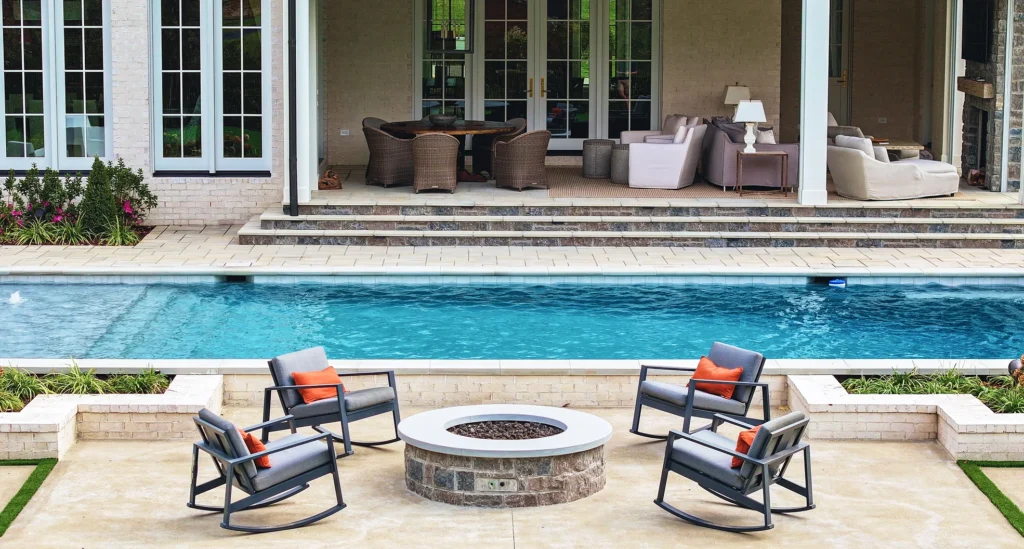
The short answer is yes. Home inspections cover new construction and are an essential part of new construction because, contrary to popular belief, new construction homes aren’t free from defects.
While many builders and realtors won’t market a new construction home with known defects, many defects surface after moving. What’s more, municipal codes don’t protect homeowners from many defects.
As a result, we always recommend having your new construction home inspected multiple times before, during, and after a build. A quick walk-through inspection is a great place to start, but you’ll want to do multiple inspections to ensure nothing goes unchecked.
When home inspections should be done
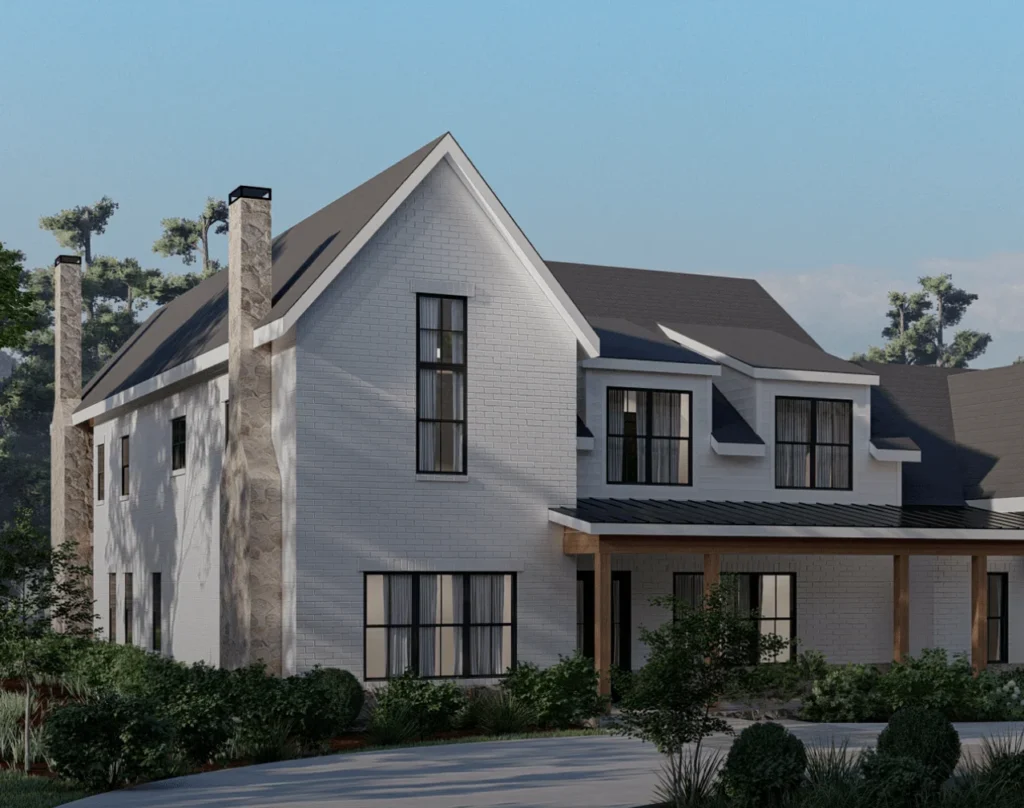
In an ideal scenario, you should have your home inspector come to a new construction project during the following phases of the build:
- At pre-inspection time
- For frame inspections
- For mechanical system checks
- Before drywall is laid
- For the final walkthrough
Let’s dive into each of these in the next sections.
Pre-inspection time
The first inspection should be done by your building contractor with the support of a compliance professional. Why is that?
Because doing so can ensure that the foundation is level and that drainage and weather management procedures are in place before building the home.
For frame inspections
Inspect the home’s frame before sealing up the walls. You want to inspect the frame to identify any possible issues that might be hiding in plain sight behind the walls, such as issues with plumbing, electrical wiring, and insulation.
By conducting an inspection before drywall is installed, you can solve any potential issues that can arise later down the road.
Mechanical system checks
To avoid structural issues with major components, conduct an inspection once all mechanical systems are in place. Conducting this inspection means checking on the functionality of various systems like HVAC systems, plumbing, electrical outlets, and appliances.
Mechanical system checks are crucial to ensuring that all systems work as intended. Once all systems are go, as they say, you can move on to conducting a thorough inspection of drywall.
Before drywall is laid
Once you’re ready to add drywall, you want to perform a comprehensive inspection of the inside of the home. You’ll need to inspect the home from head to toe for everything from proper insulation, to soundproofing to placement of electrical outlets and switches, and more.
Inspect ceilings, walls, floors, and any other area of the home where you think signs of damage or cosmetic defects may be present. Once you’ve made the corrections, you can then move on to laying drywall.
The only inspection left is one that’s conducted at the final walkthrough of the new home.
The final walkthrough of the new construction home
The last home inspection involved in the construction process should be at the final walkthrough. In the final walkthrough, you’ll have the opportunity to speak with a certified inspector and outline any last repairs and adjustments needed to make your home ready for living.
At this point, most homeowners like to address minor cosmetic finishes, such as paint, trim, and electrical outlets. The final walkthrough is the last check on a new construction home to ensure it’s free of defects.
Key reasons to conduct a home inspection on new construction
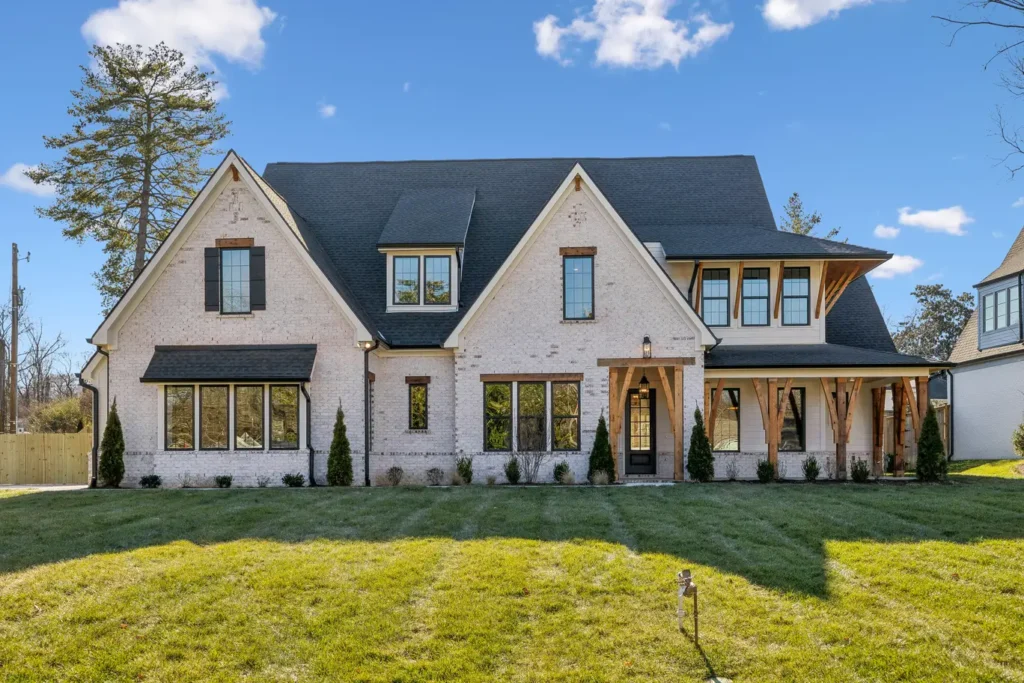
Aside from giving you peace of mind on the structural integrity of your new home, a new construction inspection can help you:
- Save on potential repair work later down the road
- Increase the efficiency of your home
- Give you more agency over your home
Save on potential repairs
A small investment of time can save you thousands of dollars on major structural repairs. For example, repairing a foundation can cost thousands of dollars.
Therefore, it’s worth uncovering mistakes and flaws in the building and design of structural components before closing on your new construction home.
Sometimes, repairwork could have been prevented had an inspection been conducted in advance. For example, floor joists, support beams, and framing components tend to present problems months after they’re installed.
If you didn’t inspect your new home, you’ll be responsible for patching up repairs (unless you have a warranty on the components). Nevertheless, minor repairs like sealing vents and trim that’s poorly screwed in are the homeowner’s responsibility.
So, if you didn’t conduct an inspection during the building process, you’ll likely shoulder the cost of minor repairs. In other words, a little upfront time in an inspection can save a great deal of time and money in the long run.
Increase efficiency of your home
Another possible benefit of conducting a timely home inspection is the potential for a more energy-efficient home. Some homeowners hire consultants to conduct a cost analysis on the possible repairs to maximize the energy efficiency of their home.
Replacing appliances with Energy-STAR certified appliances, replacing outdated HVAC units with smart heating and cooling systems, and weatherstripping a home can help increase the efficiency of a home.
A certified home inspection professional can provide recommendations and insights into how to make your home more energy-efficient. With their recommendations in mind, you can create a more functional and inviting home.
More agency over your home’s final price
Conducting an inspection gives you more agency over the cost of the home with your contractors and building team. With an inspection under your belt, you’ll be able to negotiate and work with your builder to determine how to address repairs.
Part of the negotiation process involves determining who will be responsible for repairing the issues. Either your builder will negotiate a lower final price so you can repair the issue, or they will absorb the cost and repair the issue themselves.
You’ll be able to avoid liability with a home inspection under your belt. In fact, the best builders work with qualified consultants and follow best building practices when constructing a new home.
They’ll work with you to create a home that’s free of defects and is in line with your budgetary needs.
Canaan Builders tip: Home inspections for cold weather
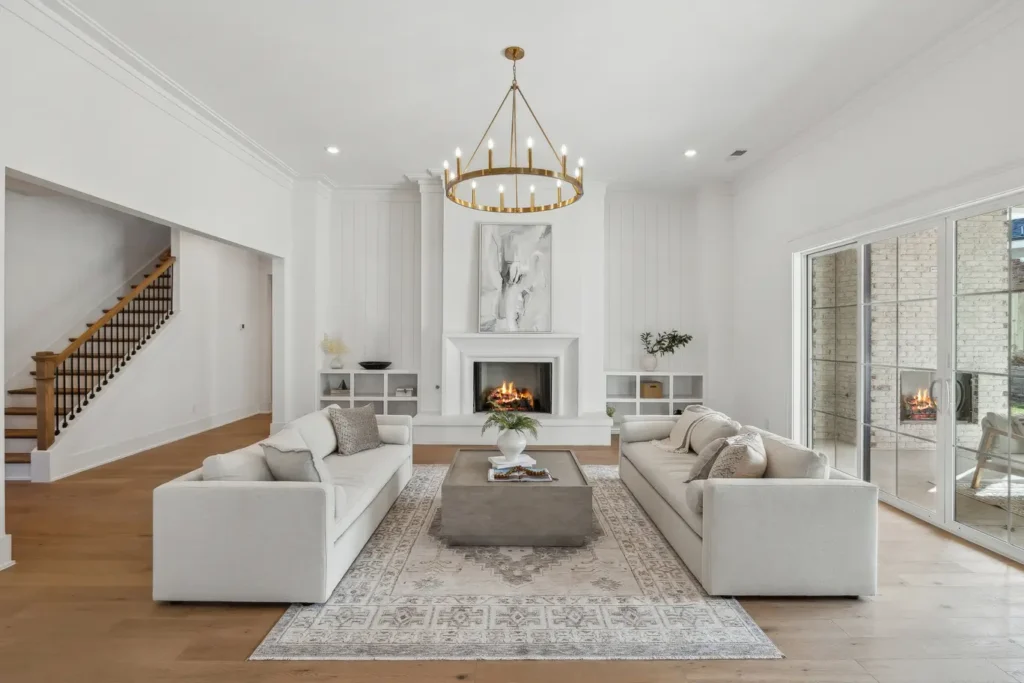
Part of a home inspection includes checking all areas of a home work — especially during cold weather. Here are a few super easy tips to keep the chill out and the warmth in:
- Insulate those pipes: Wrapping pipes with foam sleeves is like giving them a cozy winter sweater. It helps prevent freezing and keeps hot water flowing smoothly. No more icy surprises!🚿
- Seal the drafts: Hunt down those sneaky drafts and seal them up. Weatherstripping around windows and doors is your best friend this winter. Keep cold where it belongs, outside! 🚪🔒
- Love your heating system: 🌡️❤️ Give your furnace some TLC. Change the filters regularly for optimal efficiency. A happy heating system means a warm, happy home!
Remember, a little prep now means a lot of comfort later. ❄️🏠 Check out this article for more helpful home renovation ideas or our Instagram page for home inspiration.
Quality home inspections and builds with Canaan Builders
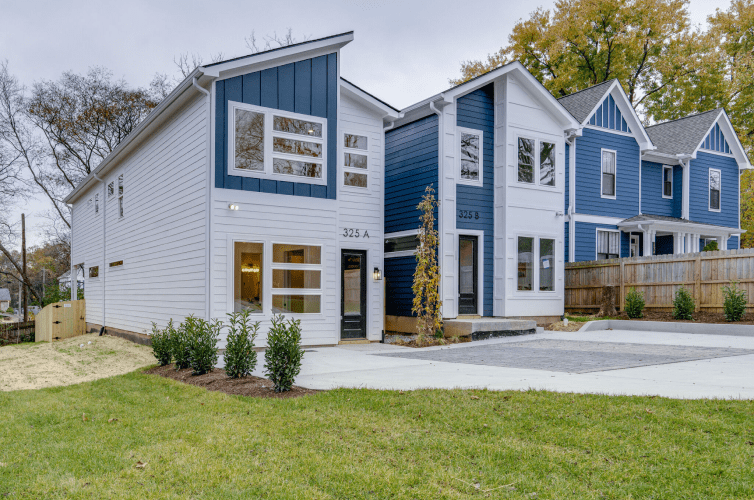
Before building or buying a home in Middle Tennessee (or anywhere, for that matter), finding the right builder and contracting team is crucial. Why?
Because a dedicated builder with decades of experience under their belt will help minimize the need for repairs and will work with you, on your timeline, and on your budget to complete your home to your liking. They’ll do more than just the bare minimum.
A quality builder provides opportunities for inspection, drafts inspection reports that are provided to you, and builds a home that’s up to municipal code.
That’s what we believe here at Canaan Builders. Your builder should be more than a contractor or a one-time hired hand.
They’re your trusted partner for all your luxury home’s needs.
We provide comprehensive, multi-point home inspections that address the gamut of home construction. Curious to learn about how we approach the home inspection process for new construction homes?
Give us a call today at (629) 209-6307, or contact us via email at info@canaanbuidlerstn.com. For all your home construction needs, don’t hesitate to contact us any time. We’d be happy to answer any questions you might have about your luxury home needs.


